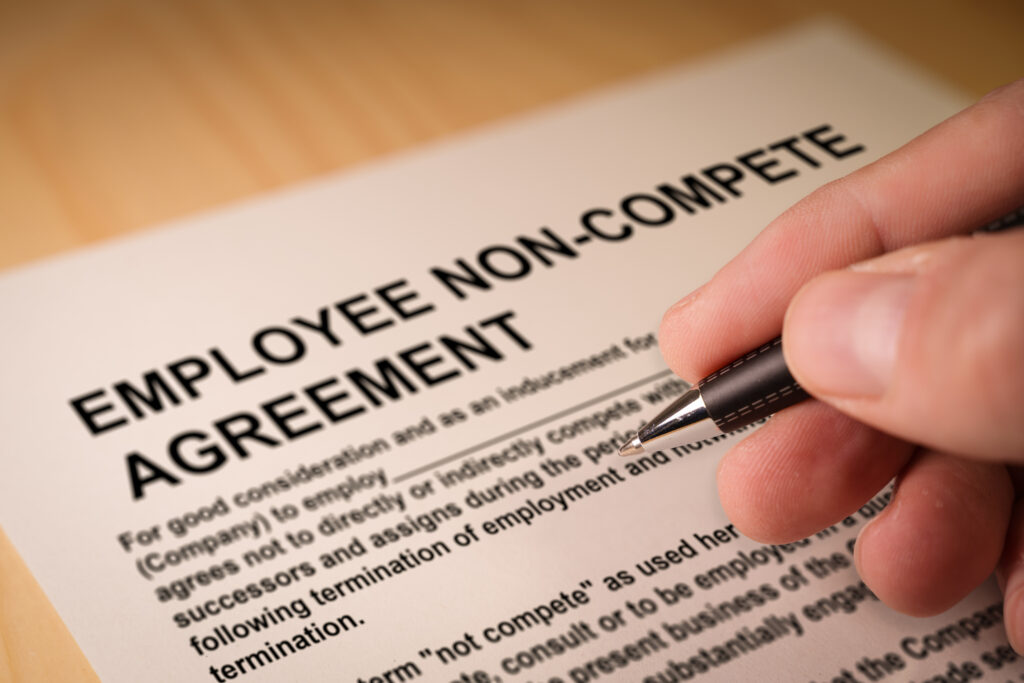
The Federal Trade Commission’s (FTC) policy to ban non-competes, which would ensure roughly one in five American workers – more than 30 million people according to conservative estimates – are no longer bound by these restrictive clauses, is set to go into effect on September 4, 2024. Still, it faces legal challenges from special interest groups.
On April 23, 2024, the FTC voted to finalize a new rule that prohibits employers from enforcing non-compete clauses against workers, which can prevent employees from leaving their jobs for a better, higher-paying offer in the same industry.
The rule faced an almost immediate challenge from special interests, with a lawsuit filed within hours of the rule’s publication. In the lawsuit, special interests try to apply the “major questions doctrine” as a way to attack the policy, continuing a pattern of far-right interests seeking to expand this doctrine to apply to any policy they want to see struck down.
- Ryan, LLC v. Federal Trade Commission (FTC)
On May 29, 2024, legal scholars defended the Biden administration’s policy banning most non-compete clauses in worker contracts from far-right legal attacks, submitting a brief in federal district court in Texas.
In their brief, leading law professors who teach and write in administrative law argue that the FTC’s new rule “will greatly aid the mobility of the American labor force and incentivize employers to offer competitive compensation.” Further, the experts write in their brief how the “major questions doctrine” should not apply: “While the Rule and its impacts will be life-changing for individual workers, it is decidedly not a transformative or unheralded exercise of the Commission’s authority. The Rule is of a piece with long-established Commission authorities; accordingly, it does not implicate the major questions doctrine.”
The legal experts, including William Araiza, the Stanley A. August Professor of Law at Brooklyn Law School, Peter Shane, the Jacob E. Davis and Jacob E. Davis II Chair in Law Emeritus at Ohio State University, Moritz College of Law, and Jeffrey Lubbers, Professor of Practice in Administrative Law at American University, Washington College of Law are being represented in the filing by Democracy Forward Senior Counsel Mark Samburg.
Ryan, LLC asked the court to stop the effects of the FTC’s Non-Compete Rule, a request that the court granted on July 3, 2024. The court postponed the rule’s effective date as it applies to the plaintiffs.
- Properties of the Villages v. Federal Trade Commission (FTC)
On August 1, 2024, law professors William Araiza, Jeffrey Lubbers, and Peter M. Shane, represented by Democracy Forward, filed a brief before the District Court of the Middle District of Florida defending the FTC’s Non-Compete Rule. The brief argues that this rule is a legitimate exercise of the FTC’s authority, consistent with the FTC’s statutory mandate to regulate unfair methods of competition.
Properties of the Village – a real estate company that only sells properties within and is affiliated with The Villages, the 58,000-acre retirement community in Florida – is asking the court to stop the rule’s effects and argues its economic and political significance as a basis for applying the major questions doctrine. However, our brief explains that the major questions doctrine only applies to extraordinary cases where an agency asserts new and expansive powers beyond its traditional scope. This rule does not fall into that category because it aligns with the FTC’s long-standing role in regulating unfair competition.
In the appellate stage, the same coalition of legal scholars is defending the FTC rule before the 11th Circuit Court of Appeals.
- ATS Tree Services, LLC v. Federal Trade Commission (FTC)
On June 10, 2024, we filed a brief on behalf of law professors William Araiza, Jeffrey Lubbers, and Peter M. Shane supporting the FTC’s new non-compete rule in ATS Tree Services, LLC v. FTC, before the District Court of the Eastern District of Pennsylvania.
ATS Tree Services is asking the court to stop the effects of the FTC’s new rule by applying the major questions doctrine. According to their arguments, the FTC has no legal authority to apply and enforce this new rule.
However, our brief argues that the major questions doctrine is not applicable in this case since it applies only to extraordinary cases where agencies make new claims to authority that significantly expand their statutory powers, which is not the case since the rule is a straightforward application of the FTC’s established statutory authority over unfair methods of competition. The rule is consistent with the FTC’s long history of addressing non-compete agreements as anti-competitive practices, and it does not represent a transformative exercise of power.